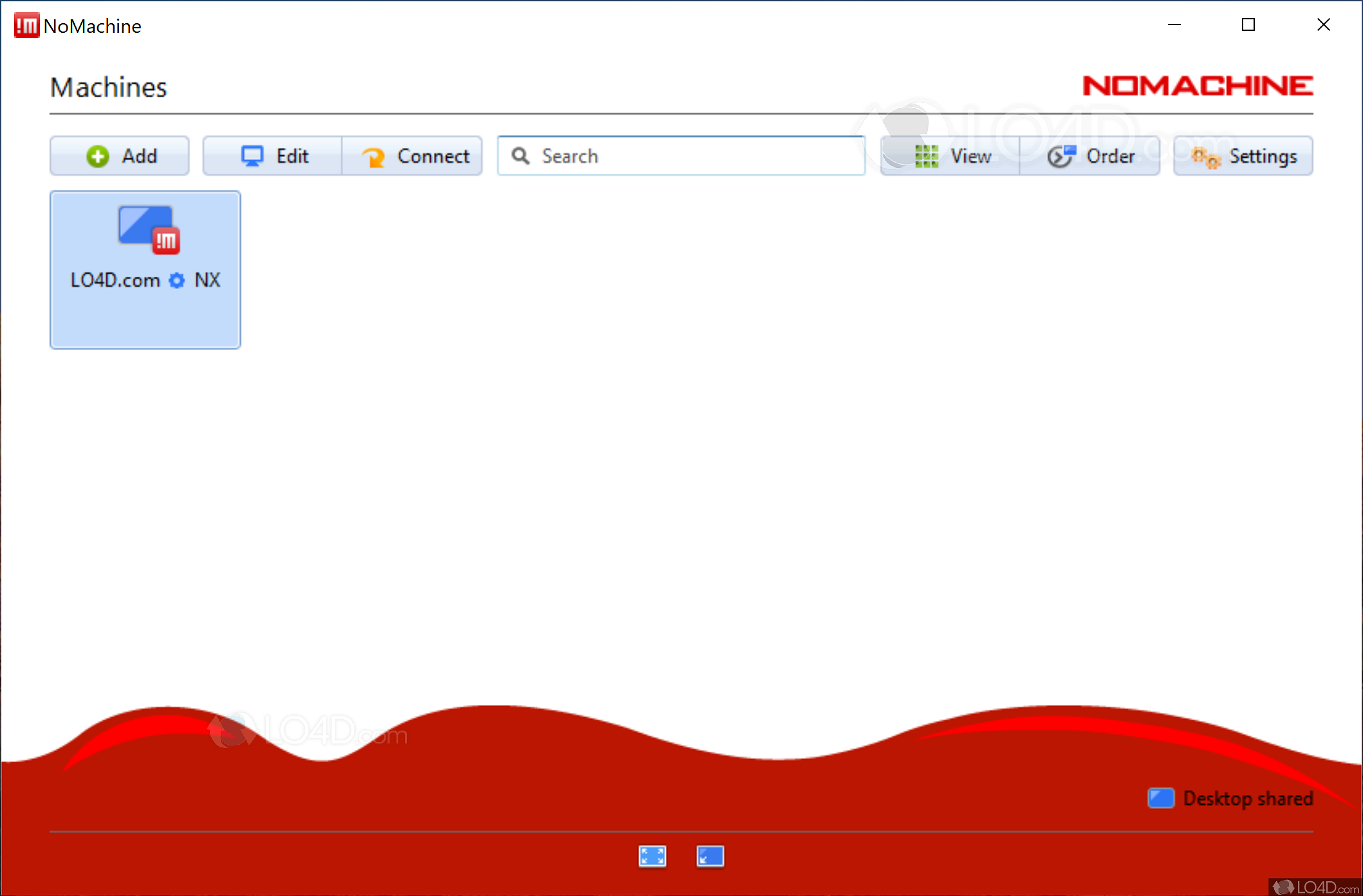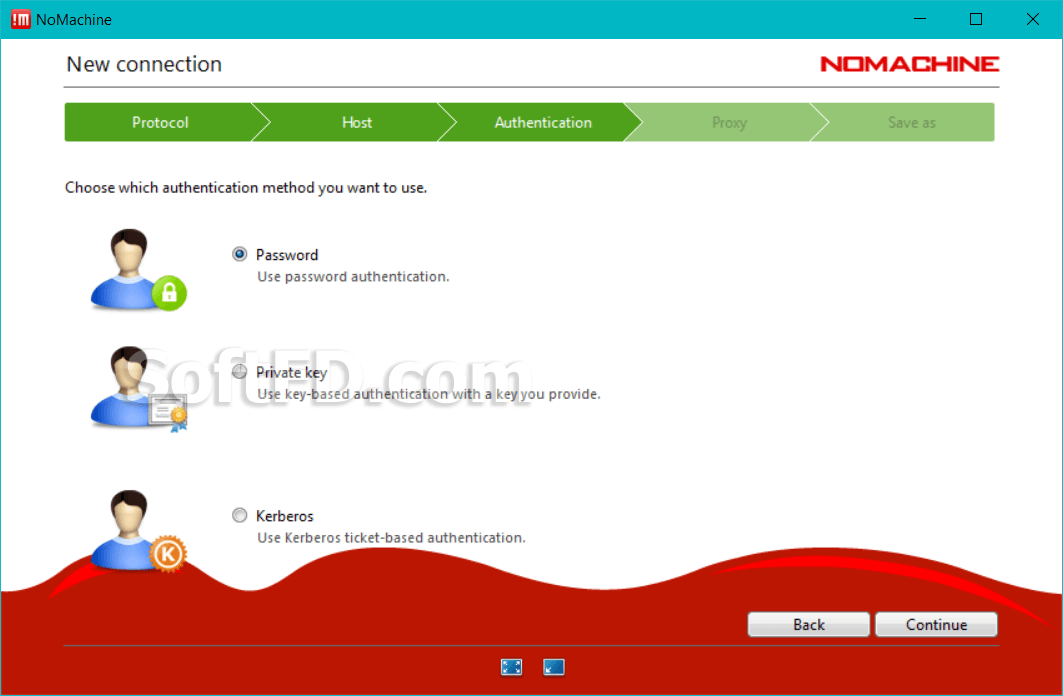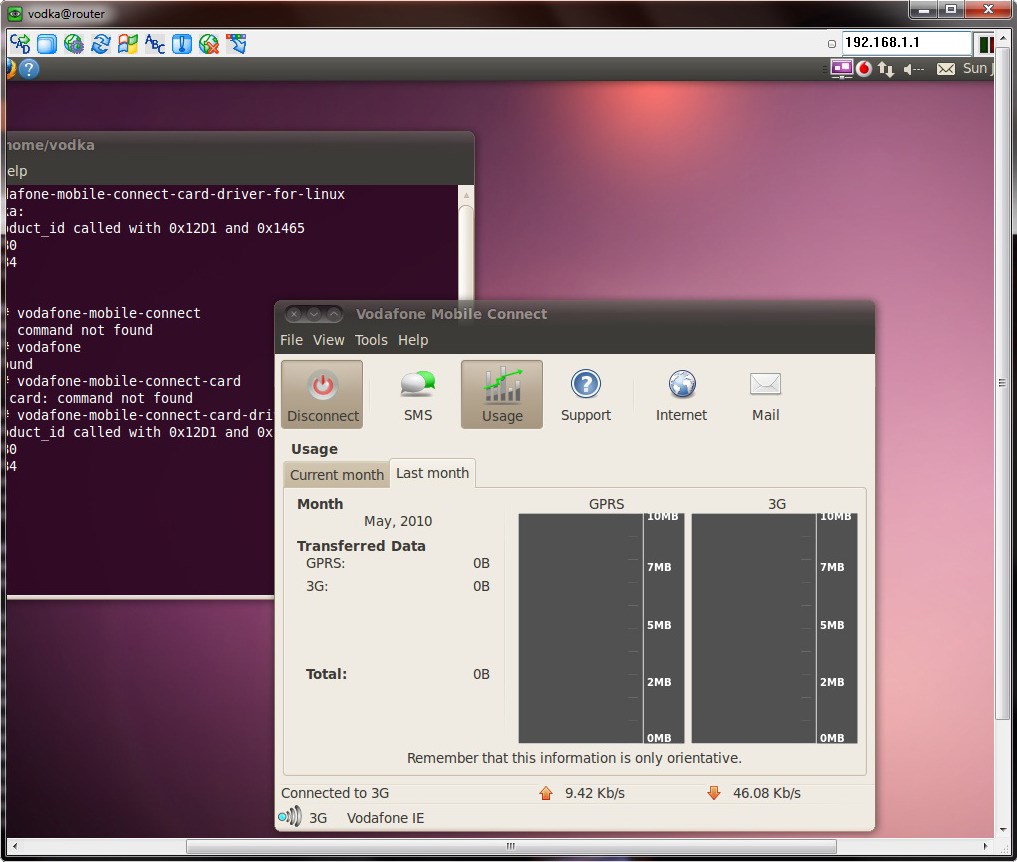
view list of users : sudo /usr/NX/bin/nxserver -userlist.remove trusted for a user : sudo /usr/NX/bin/nxserver -useredit classeuser -trusted=none.delete a user : sudo /usr/NX/bin/nxserver -userdel classeuser.add a new trusted user : sudo /usr/NX/bin/nxserver -useradd classeuser -trusted.Login to your station computer, and in the following commands replace "classeid" with the remote user's classe username. Staff scientists are configurd as "NX Administrators" of their station computers, which allows them to maintain the list of trusted users. Unless a user is in your computer's list of trusted users, they won't be able to connect until someone already connected to the display allows their connection. Please submit a ServiceRequest if you would like the ability to manage NoMachine connections on your desktop or workstation.
#Nomachine 4 mac os#
Click on "Open menu panel" to open the menu panel of your current connectionĬlick on "Display" and then "Change settings" to fine-tune quality, performance, resolution, etc.Ĭlick on "Input" and the "Grab the keyboard input" to pass the Windows or Mac OS command keys to the remote computer.move your cursor to the NoMachine icon in your taskbar and click on it.Once you've connected to your remote computer, enter the key combination Ctrl+Alt+0 to open the menu panel or: right-click on the existing “virtual” session you seeĬhange connection settings (display, keyboard, etc.).To kill an existing virtual desktop or custom session: Please see below for changing the display settings after starting a connection. Good initial defaults might be “Show remote display at its resolution using scrollbars” and “Resize the remote display to match the client monitor” to should give you a nice full-screen display. double-click on “Create a new virtual desktop”.click on the “New desktop” button (or double-click on “Create a new desktop or custom session”).start a connection to using either the NX or SSH protocols.Click "OK" to accept the default Audio streaming setting (if desired).ĭepending on the version of nomachine installed on your computer, you may be able to create Virtual desktops in addition to controlling the physical display.Double click on the computer you'd like to control.Login with your CLASSE username and password.The first time connecting, click "Yes" to accept the remote host certificate and verify its identity.Start NoMachine, and double-click on the connection created above.Change the connection name if desired, and click on "Done.".If you get a proxy checkbox, leave "Don't use a proxy" selected, and click "Continue.".If Prompted, select "Password" authentication method, and click on "Continue".For using our cloud server to connect to computers on private subnets.Host = the hostname of your desktop or workstation.For using your own CLASSE Public desktop or workstation.For using lnx201 - our general use login node (not appropriate for CPU or memory-intensive applications).Fill in the details for your desired connection.On a CLASSE-managed computer, to complete the installation without admin privileges, please change your installation directory to C:\TEMP\nomachineclient (or any folder under C:\TEMP).
#Nomachine 4 install#
#Nomachine 4 license#
With a license purchase, CLASSE can install the "NoMachine Enterprise Desktop" on your desktop or workstation.

Pausing Remote Access, switching between interactive and view-only, and Disconnecting Remote UsersĪvailable NoMachine servers and options for new installations.ĬLASSE supports four versions of NoMachine.



Available NoMachine servers and options for new installations.


 0 kommentar(er)
0 kommentar(er)
